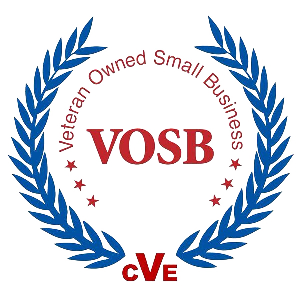Air: Collect and analyze data for Title V permitting. Compile and validate Title V information prior to submittal to regulators. This includes working with business operations internal and external engineering, and legal subject matter experts. Negotiate Title V permit conditions with regulators which include technical and administrative changes. Administer program after it has been approved by the regulator(s). Include all variables into the change management program. Host Title V regulatory inspections pertaining to various agencies. Address all findings, including notice of violation(s) (NOV). Administer required training. Secure resources, including expense, capital funding and headcount for the program. Perform regular auditing to maintain optimal program performance throughout the life of the Title V permit.
Water: Maintain potable water wells, reservoirs and towers, and distribution systems. This includes pumps, motors, pipes, valves, flanges, hydrants, and monitoring equipment. Test, at the point of use, and treat water per regulatory requirements.
Wastewater: Operate chemical wastewater treatment plants. Minimize point sources and contents to eliminate risks of unpermitted discharge. Trouble shoot operational variations in the system and address system upsets. Test and treat wastewater per regulatory requirements. Perform good housekeeping practices (5S) throughout the wastewater treatment system. Maintain all aspects of the wastewater system which includes infrastructure and technology. Include all variables into the change management program. Conduct regular program auditing to ensure compliance and program optimization. Host Wastewater treatment regulatory inspections pertaining to various agencies. Secure resources, including expense and capital funding and headcount for the program. Ensure operator licensure and training is adequate and up to date.
Hazardous & Nonhazardous Waste: Determine the need for chemical use in the process by involving business partners, engineering and legal. Special emphasis is given to waste elimination or minimization. Classify waste based on RCRA or sustainability requirements. Establish proper containment and locations throughout the business to collect waste. Provide the required labeling placarding for storage and transportation of waste. Generate and manage manifests for waste type. Manage Large Quantity Generator (LQG) storage facility. Select and interface with Transportation Storage and Disposal Facility (TSDF). Secure resources, including expense, capital funding and headcount for the program. Conduct regular program auditing to ensure compliance and program optimization. Ensure hazardous waste handling training is adequate and up to date. Host RCRA regulatory inspections pertaining to various agencies. Address all findings, including notice of violation(s) (NOV).
Sustainability: Reduce or eliminate water usage and wastewater discharge, electricity and natural gas, transportable waste, and recycle material that has a positive ROI. Perform waste minimization efforts on all new and remaining equipment, processes, materials, and energy sources, including packaging. Generate a sustainability culture that elicits all stakeholder’s input. Establish a sustainability program with goals that tracks and communicates results to all stakeholders. Secure resources, including expense and capital funding and headcount for the program. Select and interface with Transportation Storage and Disposal Facility (TSDF) to determine the most advantageous and environmentally friendly method of disposal. Design and purchase a solar array to augment energy needs. Purchase energy credits that are the most advantageous to the environment. Internally and externally advertise company’s sustainability progress through a robust data collection and report out system.
Remediation: Serve as company liaison with city and state officials to negotiate and resolve engineering and managerial issues associated with the implementation of a $3,000,000 voluntary soil and groundwater remedial project.
Meteorology: Collect and analyze meteorological data from TSP and PM-10 air samplers, wind speed/direction, precipitation, pH, and barometric pressure for compliance demonstration. Train departmental personnel on the collection, analysis and manipulation of meteorological data and the maintenance of instruments.
Ichthyology: Assist in quarterly fisheries studies required by the state to determine environmental impact of thermal pollution caused from a power plant.


